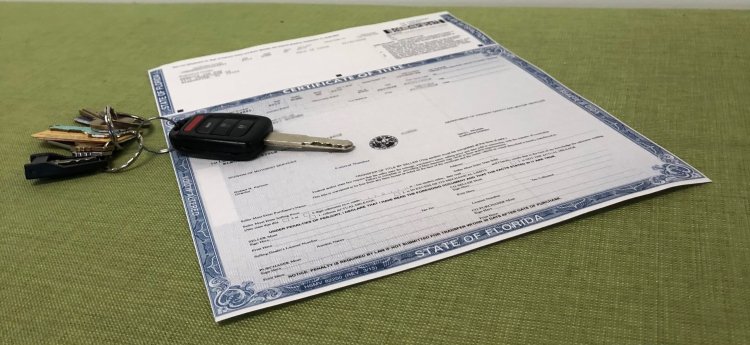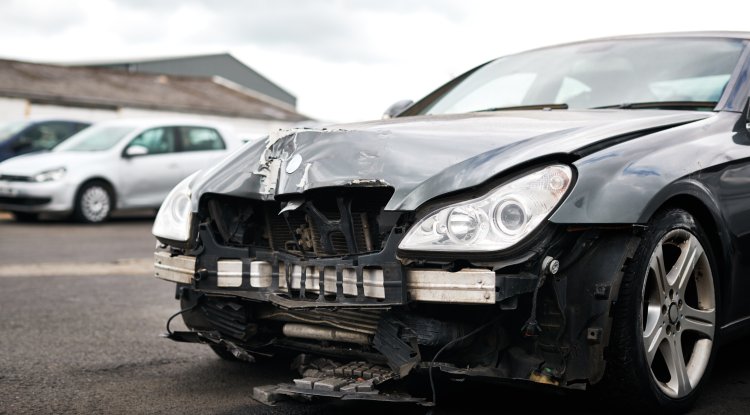Car Titles 101: A Guide to Common Types
This article provides a comprehensive overview of car titles, including their history, types, statuses, and brands. It explores the evolution of car titles and their variations across states in the US, as well as the different types of titles available, such as clean titles, salvage titles, and bonded titles. Additionally, it discusses the different title statuses, such as lien titles and electronic titles, and the various title brands that can affect the value and history of a vehicle.

The Intricate Origin of Car Titles
Uncovering the origin of car titles is no easy feat, as each state has its own unique process and timeline for implementing it. In some states, such as New York, the issuance of car titles only began as recently as 1973, with registration being the only proof of ownership prior to that.
A Tale of Two Titles: NJ’s Early Record-Keeping Measures
Meanwhile, in New Jersey, the concept of a state record of ownership was introduced much earlier, with the “Original Bill of Sale” being filed with the NJ Division of Motor Vehicles by the seller in 1931. This later evolved into the Certificate of Ownership, ultimately leading to the modern-day New Jersey car title.
Pink Slips and Technicolor Dreams
As car title practices evolved, so too did their appearance. In California, for example, car titles were formerly printed on pink paper until 1988. Today, California titles feature bold vertical strips of pink, yellow, and teal against a green border.
With no national standard in place, the format and content of car titles vary greatly across states. However, most titles do contain fundamental information, including the registered owner's name and address, license plate number, and essential details such as the VIN, year, and make of the vehicle, and the Gross Vehicle Weight Rating.
Common Title Types
When it comes to car titles, a variety of types and styles have been issued over time. Understanding the basic title brands is crucial to making informed decisions when buying a vehicle. Here's a brief overview of the most common types:
- Clean Title: This indicates that the vehicle has not sustained any significant damage and has no major issues with ownership history.
- Salvage Title: This means that the vehicle was damaged in some way, often severely, and the cost of repairs exceeded the vehicle's value. Such cars are typically sold for parts or scrap.
- Rebuilt/Reconstructed Title: These are previously salvaged vehicles that have been repaired and inspected, meeting all safety requirements and receiving a new title.
- Junk Title: This title indicates that the car is only good for parts or scrap and should not be driven on public roads.
- Lemon Title: This brand is given to a vehicle that has significant recurring problems that cannot be repaired.
By familiarizing yourself with these basic types, you'll be better equipped to assess the condition of a vehicle and make a wise purchasing decision.
Reconstructed, Rebuilt, or Prior Salvage Title: Understanding the Implications
In some cases, a vehicle that has been involved in a significant accident and deemed a total loss by an insurance company can be rebuilt and state-inspected to verify the repairs. This process may result in the DMV issuing a Rebuilt, Reconstructed, or Prior Salvage title. While such titles indicate that the car is safe for use on the road, they also serve as a permanent reminder that the car was previously involved in an accident and deemed a total loss. As a result, such titles may affect the vehicle's resale value and could be a potential red flag for future buyers. It's crucial to do your due diligence, including getting a professional inspection and a vehicle history report, before purchasing a vehicle with such a title.
Certificate of Destruction, Junk Title, Parts Only, and Flood Titles
The Certificate of Destruction is not just the name of a rock album, but a legal document attached to a car title when an insurance company takes ownership of a vehicle and deems it too damaged to be safely returned to the road. A Junk Title is issued when a car is sold to a junkyard or dismantler and can never be used on the road again. The Parts Only label is given to cars that are good only for their parts, and Flood titles are issued for vehicles that have been damaged by floods. Beware of Title Washing scams that hide branding like Flood Damage by moving the title to a state that does not use that brand.
Alternative Titles
If you're struggling to transfer a title due to a lack of ownership proof, a bonded title could be your solution. By purchasing a bond to cover the vehicle's value, you can protect yourself against ownership disputes that may arise in the future. This option is common for auctioned vehicles, estate sales, and cars left on resold properties.
A bonded title usually remains valid for three to five years, and while it may be more costly, it's a last resort when obtaining a clear title is impossible. However, it's important to note that the title will still carry its original branding and won't provide a clean slate.
In situations where documentation is missing, you may be eligible for an affidavit title, allowing you to obtain a title by signing a sworn statement.
For a more modern approach, many states now offer paperless or electronic titles, while still providing a physical title upon request for loan processing or transfer.
In cases of title liens resulting from car title loans, the lienholder typically receives the title directly. While the purchaser remains listed as the owner, they won't receive the title until the loan is paid off. It's important to run a VIN Check and Vehicle History Report to ensure that the lienholder is listed on the title, as this isn't always the case.
International Title Transfer
When importing a vehicle into the United States, a legal title that clears customs is required, even if it's from Canada or Mexico. If the vehicle has never been titled in the United States, it must undergo extensive certifications to ensure it's roadworthy before entering the country. On the other hand, when exporting a vehicle, proper documentation for clearance through customs is crucial. Failure to declare the vehicle correctly may result in difficulty obtaining a clear title at the destination, and may also incur port storage fees while waiting for the correct documents. Therefore, it's important to begin the export process as early as possible to avoid any potential issues.













